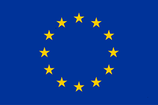|
The public funds most research carried out in laboratories, yet they are unaware of its influence on their daily lives. Scientists are always made to think and reflect on the impact their research will have on the world, however, research in academia has a different definition to what the public perceives. Our work is peer reviewed by experts in the field and published in relevant journals to validate the results and ensure reproducibility. Internet and media in the current time have made science research more accessible than ever. Research data, as a result of massive work undertaken in labs, are frequently published in news articles. An example is a recent article published in The New York Times, which stated that preterm birth rates have gone down during the COVID-19 pandemic. This news article, published in a well-known newspaper, available to the worldwide audience, sparked the interest of the general population regarding preterm birth, and the risks it could possibly have on mothers and babies. As a part of the iPlacenta consortium, our work involves communicating our research in local communities. All of our ESRs are involved in some kind of outreach programme. This involves talking about their take on Preeclampsia from the perspective of clinicians, engineers, and scientists. I was curious if people knew about Preeclampsia or the recent research associated with it. The best way to find out was through a quick survey.
|
About the blogBeing a PhD student in a European training network is a life-changing adventure. Moving to a new country, carrying out a research project, facing scientific (and cultural) challenges, travelling around Europe and beyond… Those 3 years certainly do bring their part of new - sometimes frightening - but always enriching experiences. Categories
All
Archives
December 2021
|



 RSS Feed
RSS Feed

9/12/2020
0 Comments